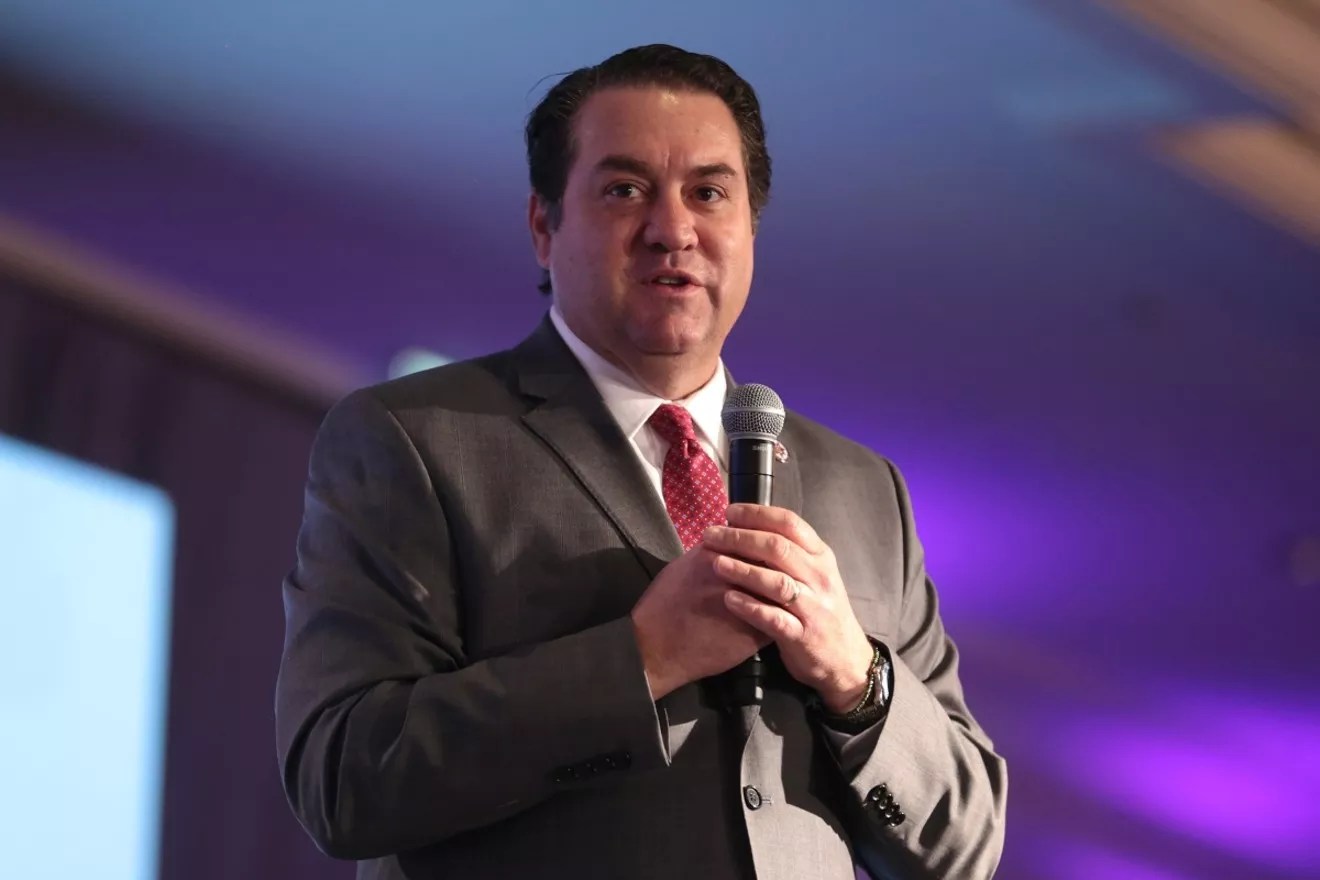
Gage Skidmore

Audio By Carbonatix
Since Roe v. Wade was overturned by the United States Supreme Court on Friday, abortion providers in Arizona have been plunged into legal uncertainty. Many clinics have shuttered their doors, pending clarification of the legality of the procedure in the state.
On Wednesday, Arizona Attorney General Mark Brnovich said in a statement that he believes an 1864 Arizona law still on the books is now enforceable – which had been unclear in the days since Roe was undone. This territorial-era law is essentially a total ban on abortions in the state.
Brnovich’s word is not yet the final say. The 1864 law is currently blocked by a court injunction. But the reason for that injunction was the 1973 Roe v. Wade decision. “We will soon be asking the court to vacate the injunction,” Brnovich vowed on Wednesday.
These legal questions, now, will be tested in the courts. But with the Arizona Attorney General’s office in favor of enforcement the 1864 law, the sweeping abortion ban that advocates feared would return to Arizona may soon be the law of the land.
The law, ARS 13-3603, makes abortion at any stage of pregnancy illegal, with no exceptions for cases of rape or incest. Any abortion provider – including anyone who “supplies” a woman with abortion medication or “procures such woman to take” abortion medication – would face a mandatory prison sentence of between two and five years.
Even before Wedensday’s announcement, and amid the uncertainty, eight of nine licensed abortion clinics halted offering the procedure.
Other laws, so far, have further complicated this picture. This spring, when Roe was still in place, Governor Doug Ducey signed into law a 15-week abortion ban. This law prohibits abortions only after 15 weeks, except in cases of medical emergency. It is set to take effect in around three months.
In Brnovich’s statement on Wednesday, he clarified that the 15-week ban did not supersede the territorial law. “Our office has concluded the Arizona Legislature has made its intentions clear regarding abortion laws,” Brnovich wrote. The pre-Roe law “will not be repealed” once the 15-week ban takes effect.
Arizona State Senator Nancy Barto, a Republican representing north Phoenix and other parts of the Valley, was a main author of the 15-week ban. She has said her intention was to ensure that the 15-week ban would preserve the 1864 law. Ducey, however, has disagreed. When Ducey signed it, he said that he expected the 15-week ban, not the old law, would take hold should the Supreme Court overturn Roe.
Asked about this at a press conference on Friday, Barto said: “Governor Ducey signed SB1164 [the 15-week ban], which includes the language that ensures that the underlying pre-Roe law is still in effect under these circumstances.”
Meanwhile, the American Civil Liberties Union of Arizona is suing to prevent enforcement of a separate “fetal personhood” law signed in 2021. This law holds that any fetus, from the moment of conception, is given full personhood rights – meaning that any law that applies to a person or child must also apply to a fetus. With Roe gone, this opens the door for potential prosecution of women who get abortions.
The ACLU sued on behalf of abortion doctor Paul Isaacson in Phoenix, arguing that the law was “unconstitutionally vague as applied to abortion” and put him, and “potentially his patients” at risk of criminal prosecution.
The ACLU filed suit on Saturday, the day after Roe was overturned. So far, it’s unclear whether it will be successful in its challenge to this law – or whether other abortion rights advocates will succeed in the inevitable challenges to other Arizona’s abortion bans.
To do so, they will have to go up against Brnovich and his office.